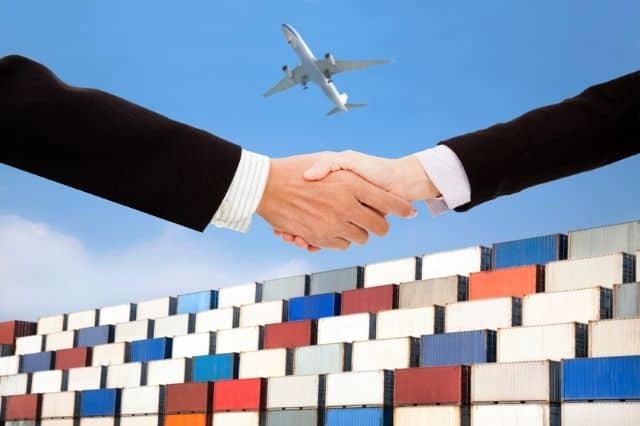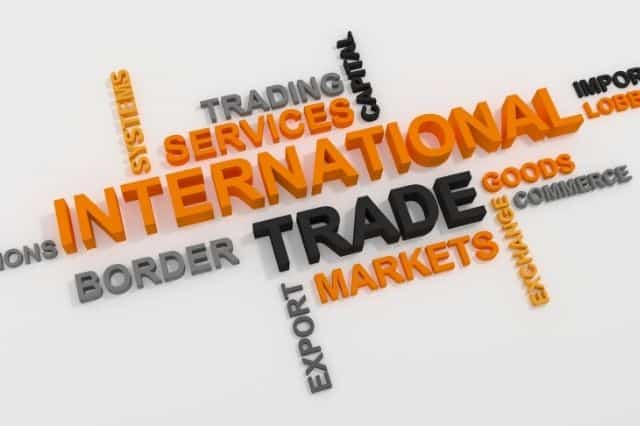Basic of International Trade
A country specializes in a specific commodity due to mobility, productivity, and other endowments of economic resources. This stimulates a country to go for international trade. The basis of international trade lies in the diversity of economic resources in different countries. All countries are endowed by nature with the same production facilities.
There are differences in climatic conditions and geological deposits as also in the supply of labor and capital. These differences provide a country an opportunity to specialize in the production of some specific commodities. Such specialization is facilitated by the exchange of surplus production through international trade.
International trade takes place when buyers find foreign markets cheaper to buy in and sellers find them more profitable to dispose of their products than the domestic market. Thus, more effective use of the world’s resources is made possible through international trade.
Economists cite Ricardo’s theory of Comparative Advantage as the first principle of international trade. This theory demonstrates that it benefits all countries to be involved in international trade, even if they do not have an absolute advantage. Ricardo demonstrated that countries benefit from specializing in those areas where they offer the greatest relative (or comparative) advantage. Thus, all countries can benefit from international trade, especially with the subsequent “knock-on” effects of this activity.
A second principle is that nations may develop a competitive advantage relative to other nations, based on skills, access to resources, and the competitive situation arising from domestic competition.
There are many obvious examples of this principle. Switzerland is the home of banking, based on the number of high-quality competitors; Germany is the center of engineering industries, which developed originally due to their access to mineral and energy resources, but now relies on technical skills and knowledge; US companies are leaders in high tech and software sectors because of a strongly supportive competitive environment.
Michael Porter identifies four factors which either individually or in combination will help a country develop a competitive advantage in a given industry.
The four factors are:
1. Factor conditions
The factors of production- land, labor, enterprise, and capital- all potentially contribute to the development of competitive advantage. Many Gulf nations are rich in oil and gas resources; South Africa is rich in diamond mines. Developed nations such as Switzerland and Germany have well-educated labor markets, whereas other nations, such as Sudan, Haiti, and Benin have low levels of literacy.
2. Demand conditions
Porter’s model states that strong local demand creates benefits based on a better understanding of market needs. Proximity to the market facilitates this dialogue.
3. Firms, strategy, structure, and rivalry
High levels of local competition encourage competitive companies to improve, and the resulting strong competition in home markets provides a base for exploiting strengths internationally.
4. Related and supporting industries
Successful national industries normally attract good local suppliers, which in turn increases the competitiveness of this industry in international markets. Competitive advantage, once established, can be sustained and developed by improvements in each of these areas. For example, national governments may support training initiatives or allow tax incentives or grants to encourage or aid supporting industries to further develop the national advantage.
International Trade Between Nations
International trade between nations is a very important part of an economy. For the most part, international trade is beneficial between two nations that have strong markets in two different sectors.
A country with a strong market in one sector has a comparative advantage over another nation because of lower opportunity costs. This opportunity cost translates into gains from trade because of the resulting net savings by a nation on manufacturing goods. By importing goods, a nation does not have to spend time, money, or resources developing sectors of an economy, which it does not necessarily need.
International trade becomes an attractive option when gains from trade are taken into account. When a nation produces a certain good, such as automobiles, the product can be exported to another nation for goods and services in return.
The exchange of these goods usually results in lower local product costs and increased volume worldwide. If one car is worth 500 barrels of oil and the opportunity cost to extract 500 barrels of oil in the US is roughly 1.5 cars then it is an obvious advantage to import the oil and export automobiles. This is common among industries.
One example of this is in the electronics and software industries. The US produces a large amount of the world’s software. Companies such as Microsoft, Oracle, and Netscape, develop this software for use at home and for export
With this demand comes the need for supply, which is satisfied by large corporations. The software cannot necessarily be considered a commodity but it has become an essential component of most businesses in the US and abroad. However, since it is of value, it is commonly traded in the international market.
In the US, if the opportunity cost to produce one portable radio were equivalent to producing two pieces of software, then the country would find it beneficial to trade with Japan, where software is not produced to any great extent, and they could establish a one-to-one trade ratio between electronics and software.
Both nations would realize again and this would be a successful bout of international trading. This short example of cost savings attained by participating in international trade illustrates how important it is in regulating the economy.
Another aspect to consider is that no single nation can produce everything it requires for survival. This may not be because of lack of effort but because of geographical location and the climate of that region. It is in this respect that we consider international trade to be extremely important.
International trade asserts that a country will export the products that it can produce at the lowest relative cost. So China can export cameras and textiles because it can produce those goods with the least sacrifice of alternative production.


